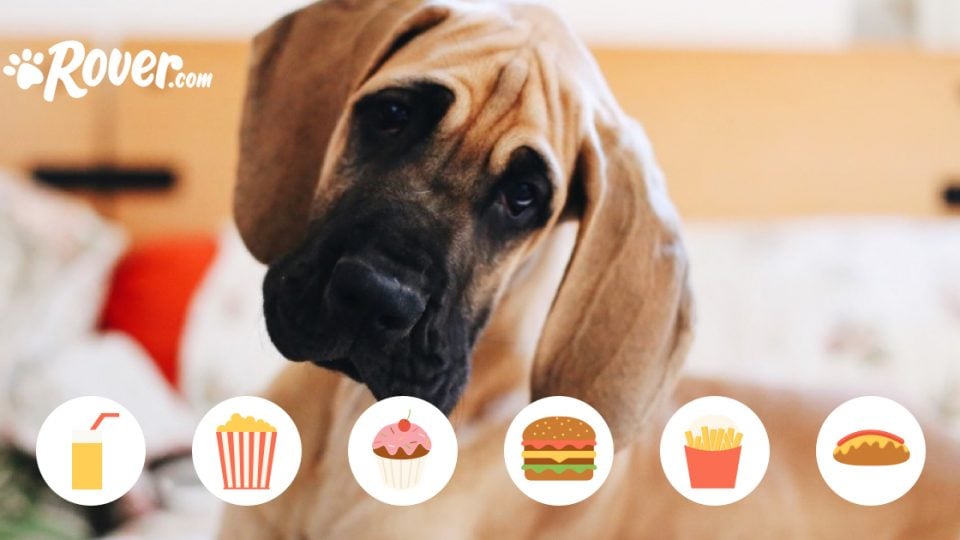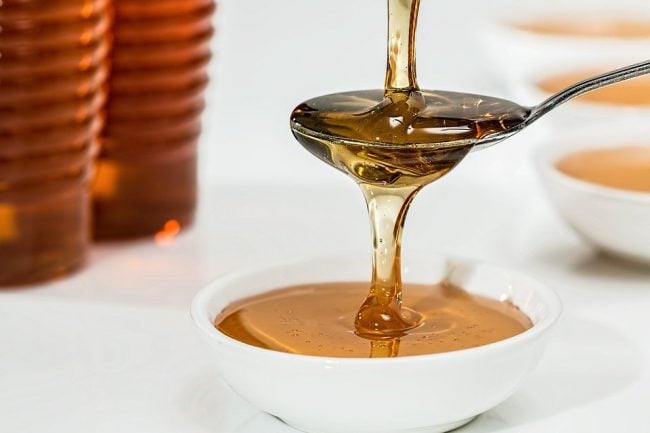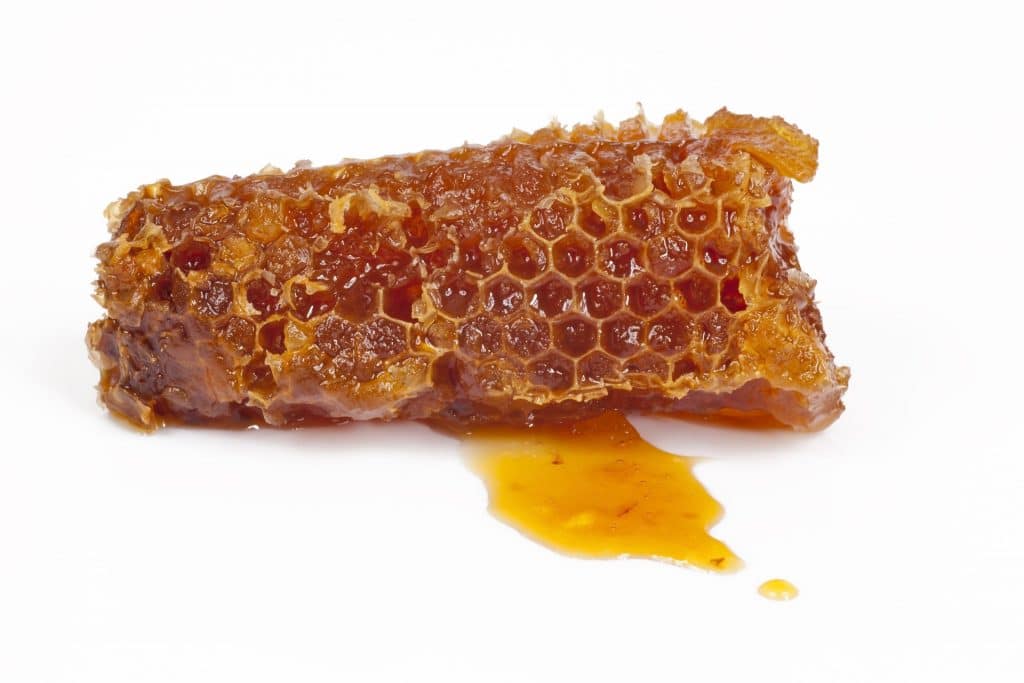- Not a substitute for professional veterinary help.
People love honey as a sweetener, a fragrant flavoring agent and a health tonic. In many places around the world, honey is also used as an ointment on skin wounds, as well as a treatment for hay fever or a sore throat. But do these benefits extend to your dog, too? Is it ok to share this sweet syrup with your pup?
Can Dogs Eat Honey?
Yes, a little bit. Honey has helpful antibiotic and immune system-boosting properties but too much of it is not good for your dog. Like sugar, honey is made up of glucose and fructose which can cause tooth decay and weight gain. Too much honey (or other sources of glucose and fructose) can also lead to increased blood sugar and heighten your dog’s risk of disease.
Depending on your dog’s size, they should be limited to one teaspoon to one tablespoon of honey per day. If your dog is young, ill, or has a weak immune system, you should not feed them raw honey.
Are There Risks To Giving A Dog Honey?
Unless your dog is allergic to honey or has a suppressed immune system due to age or illness, giving them a little bit is unlikely to pose any risks – though watch for vomiting or diarrhea following their first introduction to the sweetener. Never feed a dog more than a tablespoon of honey in a single sitting (much less for small dogs).
Honey poses a bigger risk when it is fed to a dog regularly. Over time, it can not only cause the weight gain and obesity that leads to joint pain, decreased energy and mobility, and diabetes, but to dental issues like tooth decay.
Can Immunosuppressed Dogs Eat Honey?
No. Because honey can contain botulism spores, a bacteria that has the ability to grow in the digestive tract and produce dangerous toxins, dogs with compromised immune systems should not eat honey. Obese dogs or those with diabetes should also avoid eating honey.
How Can Dogs Benefit From Eating Honey?
Honey, both when eaten and when used as a topical salve, has a variety of healing properties from which your dog can benefit.
Honey May Help Treat Seasonal Allergies
According to VetInfo, a small weekly dose of honey may help your dog manage seasonal allergies. Because honey contains a variety of types of pollen, giving a raw, local version to your dog can help their immune system learn to tolerate it better over time. Why raw honey? When honey is heated and filtered, beneficial pollen is extracted from the syrup. Raw honey is thicker and cloudier, in part, because it is infused with pollen from the local environment.
There is no strong scientific evidence to support the theory that honey can reduce the symptoms of seasonal allergies in dogs, including sneezing, drippy nose, irritated eyes, and itchy skin. However, anecdotal evidence suggests that if a dog’s allergies are triggered by one of the pollens in the honey they consume, it may be helpful. Honey is not likely to impact a dog’s symptoms if their allergy is to a different environmental factor.
Honey Can Help Wounds Heal
Honey has been used throughout history as a dressing for skin injuries. Inhibins, or antimicrobial substances, including hydrogen peroxide, a variety of flavonoids and phenolic acid contribute to honey’s healing properties. Hydrogen peroxide is a bacteria-killing antiseptic while flavonoids and phenolic acid decrease inflammation and accelerate healing.
If your dog has a skin wound or a hot spot, try applying a thin smear of raw honey to it with a cotton swab, then cover the area with a thin layer of tissue. Your dog may lick the honey off, but it won’t harm them if they do.
Honey Contains Micronutrients and Probiotics
Honey is about 80% sugar and 17% water. The rest is made up of a wide variety of trace minerals, micronutrients, and bioactive compounds, such as iron, manganese, calcium, potassium, copper and phosphorus. It contains a wealth of vitamins, including A, B-complex, C, D, E and K.
Honey has also been shown to contain probiotics, tiny microorganisms that combat the growth of harmful microflora and microbes. The probiotics in honey promote the growth of lactobacilli and other good bacteria in the gut. And a gut that’s got plenty of healthy bacteria is one that’s less susceptible to digestive issues like diarrhea, constipation and upset stomach.
The Bottom Line
A little bit of honey isn’t just a tasty treat for your dog, it’s a healthy one, too. Just make sure you’re not feeding them too much. Small dogs should have no more than a teaspoon of honey per day – large dogs no more than a tablespoon of honey per day – but a daily dose may be excessive. Offering your dog a spoonful of honey once a week is probably a better option in order to prevent them from gaining weight or developing dental problems.
For More Information
We offer a collection of articles on foods that are safe, dangerous or even toxic for dogs to eat, including vegetables, dairy, bread, and junk food.
Check out articles like Can My Dog Eat Popcorn? and Can My Dog Eat Donuts?, as well as Can My Dog Eat Candy?





